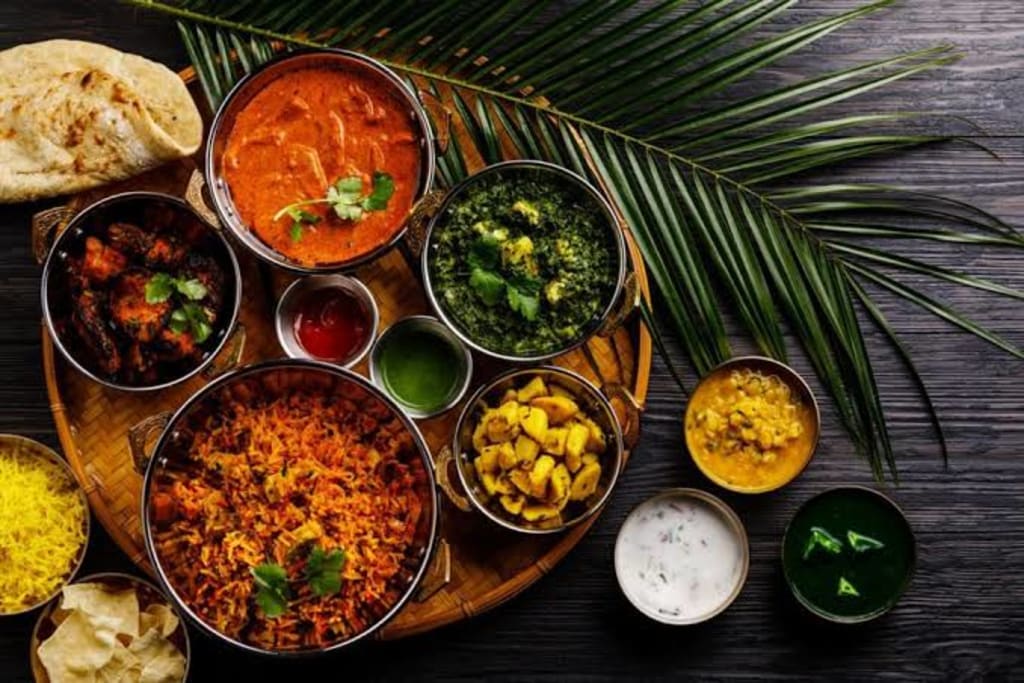Ayurvedic diet for healthy life
Live life healthy

Ayurveda is a holistic system of medicine that originated in India thousands of years ago. One of the core principles of Ayurveda is that our physical and mental health is influenced by our doshas, which are our individual body types. There are three doshas: vata, pitta, and kapha.
Vata is associated with air and space, and people with a vata dosha tend to be thin, have dry skin, and be prone to anxiety and stress.
Pitta is associated with fire and water, and people with a pitta dosha tend to be of average build, have oily skin, and be prone to anger and irritability.
Kapha is associated with earth and water, and people with a kapha dosha tend to be of a heavier build, have oily skin, and be prone to laziness and sluggishness.
The Ayurvedic diet is designed to balance the doshas and promote overall health and well-being. The foods that are right for your dosha will depend on your individual needs, but there are some general guidelines that can help you get started.
Vata people should eat foods that are warm, heavy, and grounding. This includes cooked vegetables, whole grains, nuts, and seeds. They should also avoid cold, raw, and dry foods.
Pitta people should eat foods that are cool, light, and refreshing. This includes fruits, vegetables, and whole grains. They should also avoid spicy, oily, and acidic foods.
Kapha people should eat foods that are light, dry, and warming. This includes cooked vegetables, whole grains, and spices. They should also avoid heavy, oily, and sweet foods.
In addition to following these general guidelines, it is also important to pay attention to your own body's needs. If you find that certain foods make you feel tired, bloated, or anxious, then it is best to avoid those foods.
Here are some specific foods that are good for each dosha:
Vata
- Warm, cooked cereals, such as oats, quinoa, and millet
- Root vegetables, such as sweet potatoes, carrots, and beets
- Nuts and seeds, such as almonds, walnuts, and pumpkin seeds
- Dairy products, such as yogurt and ghee
- Ripe fruits, such as bananas, pears, and apples
Pitta
- Cooling fruits, such as watermelon, cucumber, and berries
- Leafy green vegetables, such as spinach, kale, and arugula
- Legumes, such as lentils and chickpeas
- Sour foods, such as yogurt and lemons
- Spices, such as turmeric, coriander, and cumin
Kapha
- Light, dry foods, such as quinoa, millet, and brown rice
- Cruciferous vegetables, such as broccoli, Brussels sprouts, and cauliflower
- Warming spices, such as ginger, garlic, and cayenne pepper
- Bitter foods, such as leafy greens and green beans
- Dry fruits, such as figs, dates, and raisins
Here is a sample meal plan for each dosha:
Vata
Breakfast: Oatmeal with fruit and nuts or a smoothie with yogurt, fruit, and honey
Lunch: Lentil soup with whole-wheat bread or rice or a salad with grilled chicken or fish
Dinner: Roasted vegetables with quinoa or a stir-fry with vegetables and tofu.
Pitta
Breakfast: Smoothie with berries, yogurt, and spinach or Yogurt with berries, or a fruit salad with honey.
Lunch: Salad with grilled chicken or fish or tofu, or a quinoa bowl with vegetables.
Dinner: Salmon with roasted vegetables or a lentil soup.
Kapha
Breakfast: Eggs with avocado toast or a bowl of whole-wheat cereal with berries.
Lunch: Veggie wrap with hummus or a veggie burger on a whole-wheat bun.
Dinner: Chicken stir-fry with brown rice or a lentil soup.
In addition to eating the right foods, there are other things you can do to balance your doshas. These include:
- Eating at regular intervals throughout the day.
- Avoiding processed foods, sugary drinks, and excessive amounts of caffeine and alcohol.
- Getting regular exercise.
- Practicing stress-reducing techniques such as yoga, meditation, and deep breathing.
The Ayurvedic diet is a great way to improve your overall health and well-being. If you are new to the Ayurvedic diet, it is a good idea to start slowly and gradually introduce changes to your diet. You may also want to work with an Ayurvedic practitioner who can help you create a personalized diet plan.
About the Creator
Deeak Debnath
From India thats it for now....





Comments
There are no comments for this story
Be the first to respond and start the conversation.